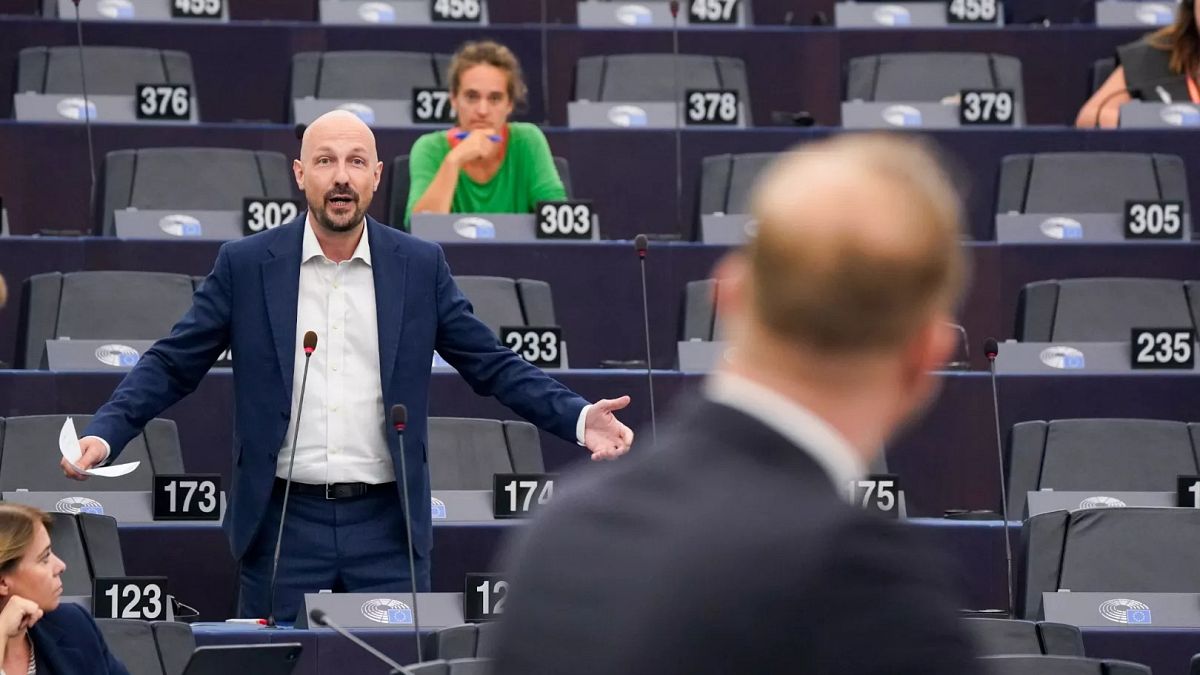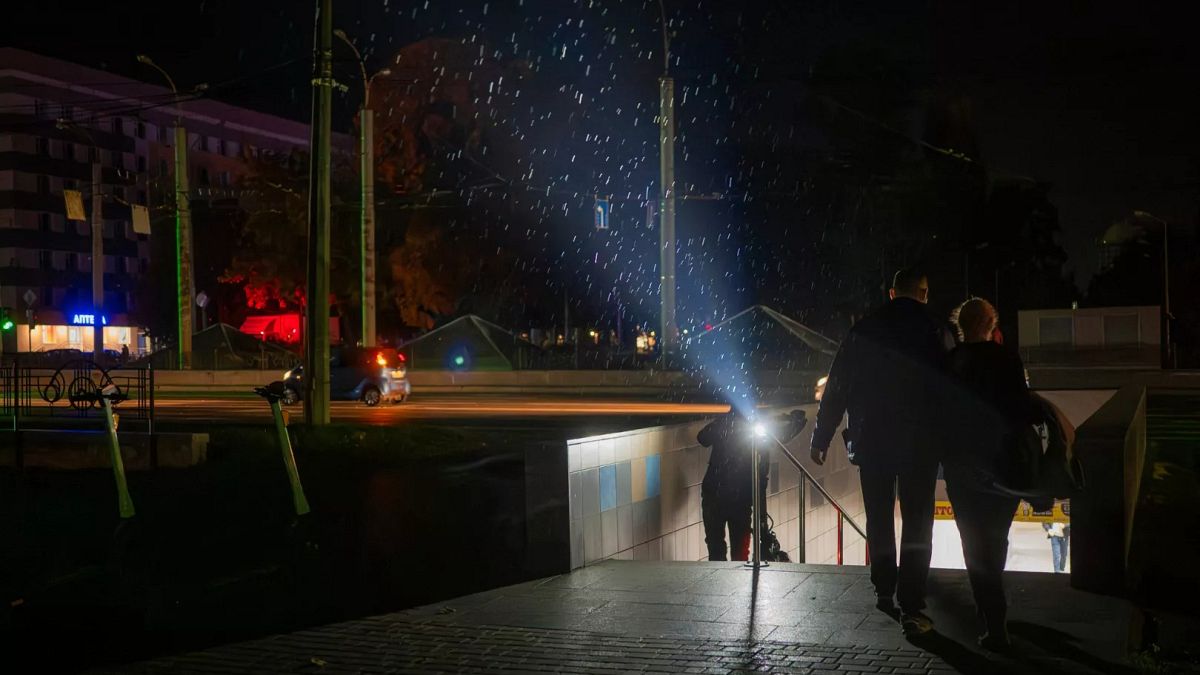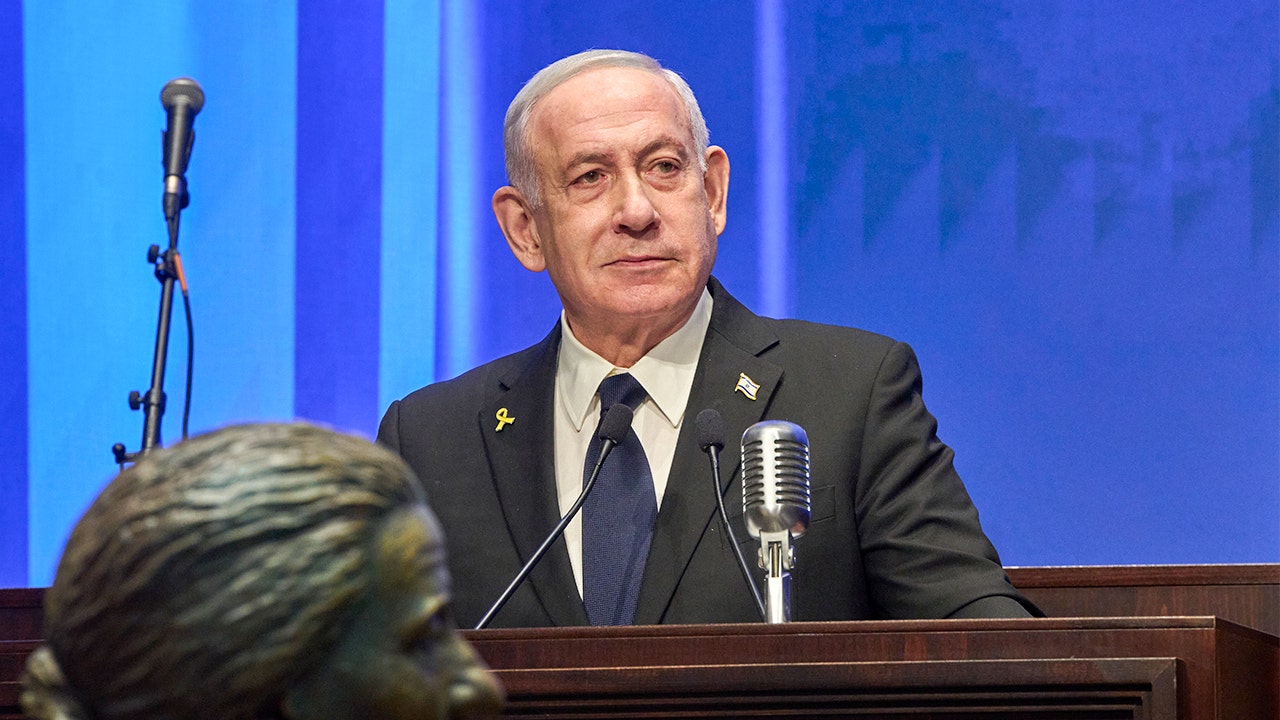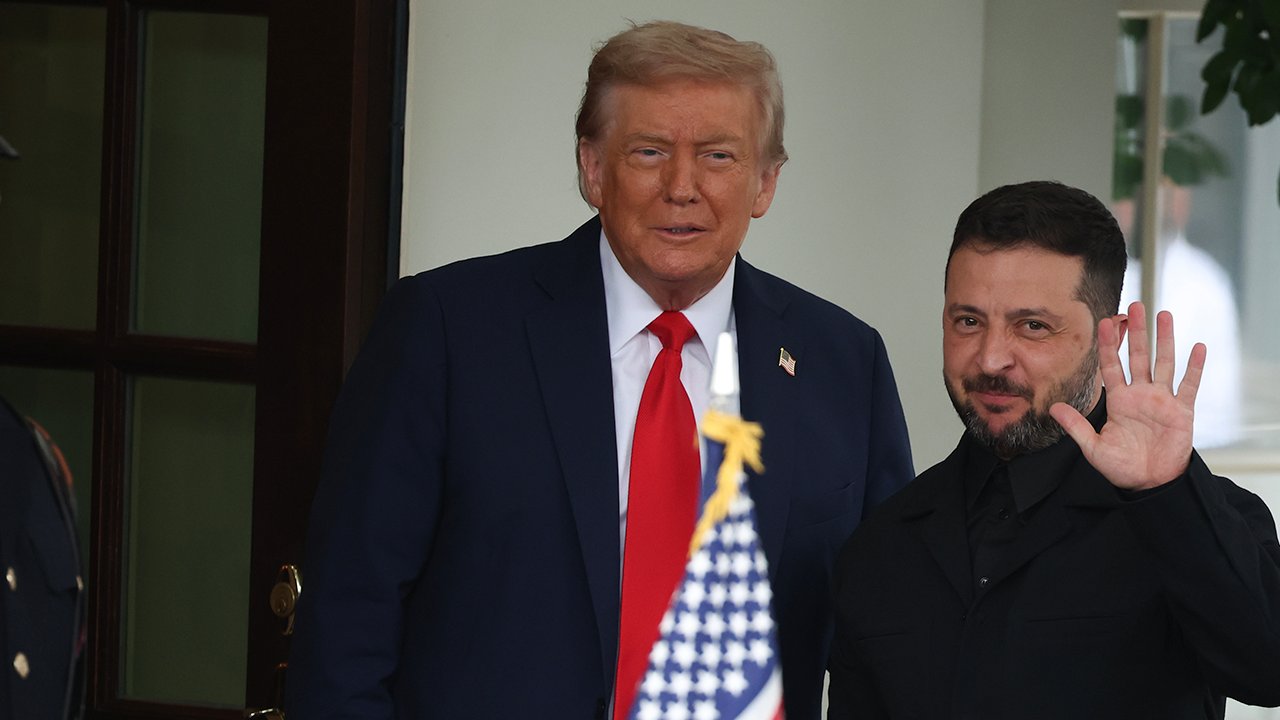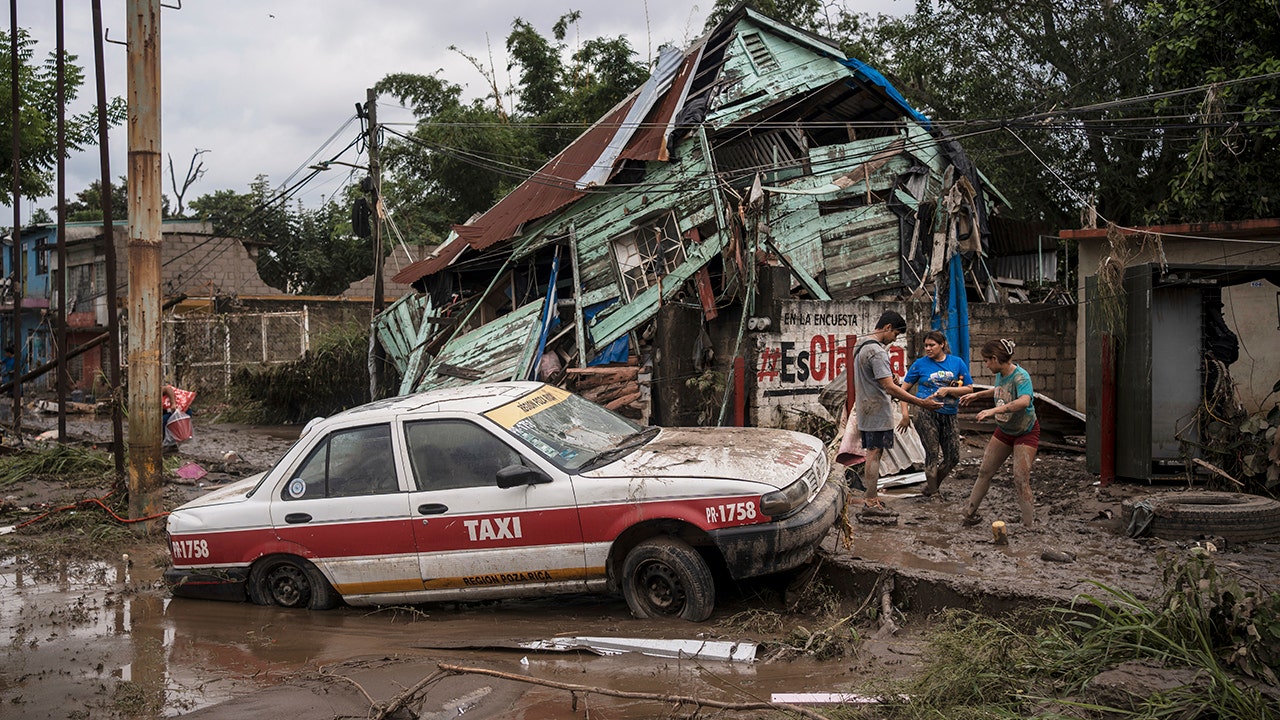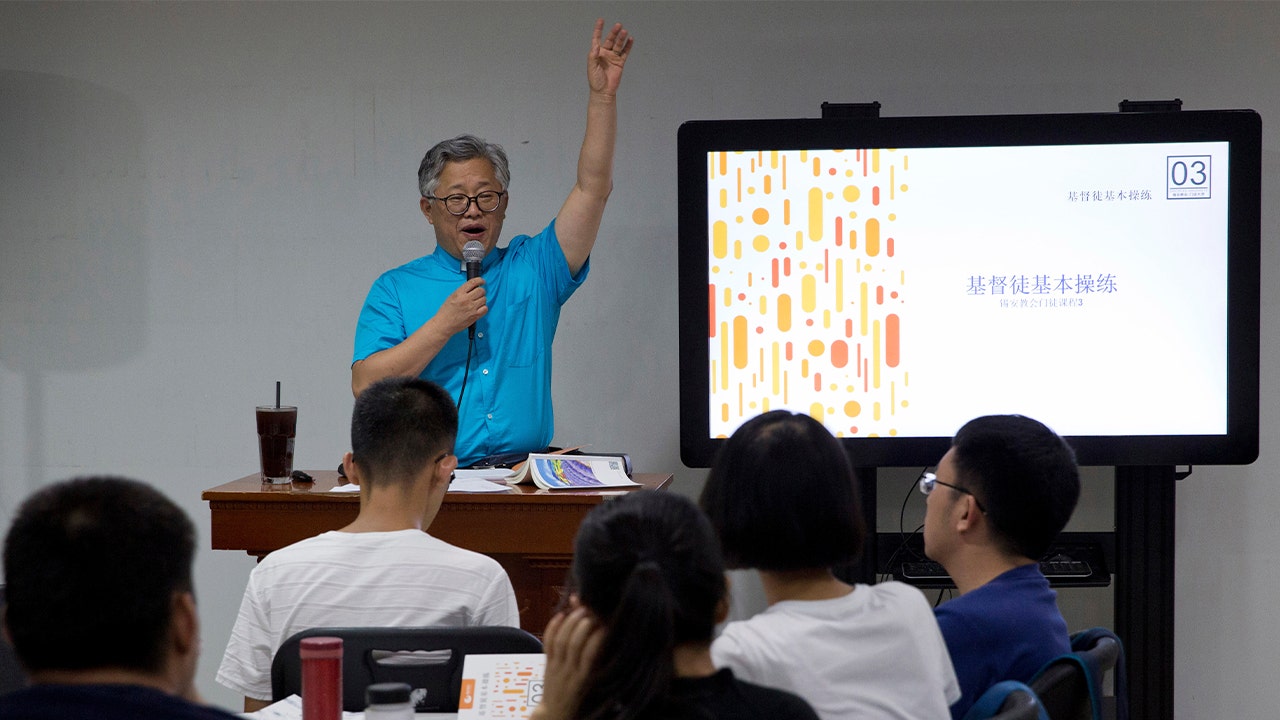ADVERTISEMENT
Europe’s ideological divergences over the war in Gaza were laid bare on Tuesday during a heated debate which focused on the word “genocide” and the EU’s paralysis over how to act over the embattled Strip.
The debate, entitled “Gaza at breaking point: EU action to combat famine, the urgent need to release hostages and move towards a two-state solution” took place in the Strasbourg hemicycle, two days before MEPs will vote on their first non-binding resolution on Gaza, the details of which are still being negotiated.
The European Parliament doesn’t play any diplomatic role in the current response to the war in Gaza, but its debates and resolutions are likely to add political pressure on the Israeli government.
So far, the EU as a bloc has recognised that Israel’s actions in the Gaza Strip are a breach of the human rights provisions contained in its Association Agreement with the European Union. But it has not sanctioned Israel due to resistance from many countries, which are keen to preserve their relationship with Israel.
During Tuesday’s debate, MEPs clashed mainly over the use of the word “genocide” to designate Israel’s actions in Gaza and the current humanitarian disaster there.
Spanish socialist MEP Nacho Sánchez Amor called on the EU to “call out evil”, and “state that this is a genocide”. By contrast, Antonio Tânger Corrêa from the far-right “Patriots for Europe” insisted that it was Hamas, which is widely recognised as a terrorist organisation, that “must be held accountable”, and “is an obstacle to peace.”
At one point during the debate, Sander Smit, a Dutch MEP from the conservative European People’s Party, lashed out against Belgian left-wing MEP Marc Botenga for his “extreme-left way” of using the word genocide in Gaza, and “insulting” the other “real” genocide victims like Armenians.
“Where is the proof of genocide?” Smit asked Botenga, adding: “Israel is providing aid, is evacuating children, if you talk about genocide… it’s antisemitism.”
Botenga replied that “everybody” acknowledged genocide in Gaza, including well-known NGOs like Amnesty International, Human Rights Watch, Doctors Without Borders and even “Israeli genocide scholars.”
“What are your sources?” Botenga asked. “Who are you to deny genocide?”
The war on Gaza began after Hamas-led militants attacked southern Israel on 7 October 2023, killing around 1,200 people, many of them civilians. While Hamas is holding 50 hostages, a subsequent Israeli offensive has killed more than 64,000 Palestinians, mostly women and children, according to the Hamas-run Gaza Health Ministry whose figures do not distinguish between fighters and civilians.
The word genocide is defined by the 1948 Convention on the Prevention and Punishment of the Crime of Genocide, as a set of five crimes “committed with intent to destroy, in whole or in part, a national, ethnical, racial or religious group.”
Prior to the MEP debate, the EU’s top diplomat Kaja Kallas conceded that the current war was “testing Europe’s resolve because we are not united.”
“We can’t move as a union until member states share the same view on what to do,” Kallas added.
Commission distanced itself from Ribera’s use of term
Last week the EU Commission’s Spanish executive vice president, Teresa Ribera, slammed Europe for its failure to act to persuade Israel to stop its military operations in Gaza, using the term genocide for the first time in public.
“The genocide in Gaza exposes Europe’s failure to act and speak with one voice, even as protests spread across European cities and 14 UN Security Council members call for an immediate ceasefire,” she told students in a speech at Sciences Po on Thursday.
Her remarks were slammed by the Israeli government, which accused her of being a mouthpiece for the militant group Hamas.
And in a press conference in Brussels late last week, EU spokespeople made it clear they didn’t agree with Ribera’s comments.
“It’s not up to the Commission to judge on this question and definition but really for the courts, and there has been no College [of Commissioners] decision on this particular subject,” the Commission’s Chief Spokesperson Paula Pinho said.
Read the full article here







